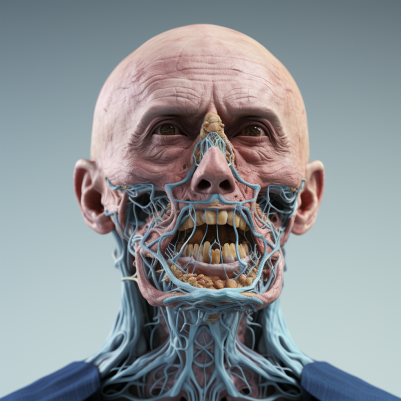Hyperthyroidism is a common medical issue that affects people of all ages. If you are suffering from an overactive thyroid, you should seek immediate medical attention. This condition arises when the thyroid gland produces excessive thyroid hormone. Hyperthyroidism also aggravates the body’s metabolic rate. Eventually, it leads to several symptoms like unexplained weight loss, irregular heartbeat, and hand tremors.
- Types of hyperthyroidism
- Primary hyperthyroidism
- Secondary hyperthyroidism
- Tertiary hyperthyroidism
- Symptoms of hyperthyroidism
- Diagnosis
- Treatments for Hyperthyroidism
- How long is the treatment procedure?
- Wrapping Up
- Why should you resort to the thyroid experts at Healthcare Polyclinic?
Types of hyperthyroidism
Given below are some of the common types of hyperthyroidism:
Primary hyperthyroidism
In this type, your thyroid glands are being stimulated constantly. However, these glands can’t produce adequate thyroid hormones for your body.
Secondary hyperthyroidism
Here, the pituitary gland isn’t stimulating your thyroid gland to produce hormones.
Tertiary hyperthyroidism
This condition occurs when an increasing amount of parathyroid hormone is secreted by parathyroid glands after a long period of secondary hyperthyroidism.
Symptoms of hyperthyroidism
Let’s have a look at the prevalent symptoms of hyperthyroidism:
- a)Lethargy
- b) Fatigue
- c) Depression
- d) Excessive sensitivity to cold
- e) Muscle weakness
Some other symptoms include:
- f) Constipation
- g) Pain in muscles and joints
- h) Brittle nails
If you turn a blind eye to these symptoms, the problems will gradually become severe. Instances are there when a person falls into a coma due to extreme hyperthyroidism. A study highlights that thyroid symptoms in females are more severe when compared to men.
Diagnosis
Your medical practitioner can diagnose hyperthyroidism by conducting various tests:
A physical evaluation of the neck to judge whether the thyroid is larger than normal: The healthcare provider will gently feel your thyroid while examining the outside of your neck. The doctor also checks your eyes, heartbeat, hands, and skin to ensure everything is normal.
Blood tests to look for increased thyroid hormone in your body: This is also referred to as thyroid function testing. If you have hyperthyroidism, the level of thyroid-stimulating hormone will be lower than normal, and the levels of thyroid hormones (T3 and T4) will be above normal.
Imaging tests to detect your thyroid: The medical practitioner will prefer to have a closer look at your thyroid by suggesting imaging tests like the Radioactive Iodine Uptake Test (RAIU), thyroid scan, and thyroid ultrasound.
Treatments for Hyperthyroidism
There are multiple treatment options for hyperthyroidism. The doctor will suggest medications for hyperthyroidism depending on the cause. Take suggestions from your doctor to identify the best treatment plan. Given below are some of the treatment options for hyperthyroidism:
Antithyroid drugs: These drugs include methimazole or propylthiouracil. They block the capacity of your thyroid to produce hormones.
Radioactive iodine: It is an oral medication that is absorbed by your overactive thyroid cells. The iodine damages the cells and your thyroid shrinks. Also, the thyroid hormone levels decrease for a few weeks.
Eventually, it minimizes the symptoms associated with hyperthyroidism precisely.
Surgery: During serious conditions, the medical professional may remove your thyroid gland through a thyroidectomy. It will cure hyperthyroidism but will cause hypothyroidism. In this case, you need to take thyroid supplements lifetime to maintain normal hormone levels.
Beta-blockers: Doctors suggest these drugs since they block the impact of thyroid hormones on the human body. They don’t alter the hormone levels in the blood but can handle symptoms like nervousness, shakiness, and increased heartbeat. Usually, this treatment is paired with another option to produce a long-term healing effect.
How long is the treatment procedure?
Treating hyperthyroidism isn’t a time-consuming process. If the medical professional treats the condition with antithyroid medications, you can expect a steady drop in hormone levels in about 6-12 weeks. On the other hand, high doses of iodine can fix your thyroid levels in 7-10 days. However, it’s not a
permanent solution and surgery is required in most cases.
Wrapping Up
If you have hyperthyroidism, there is nothing to worry about. Most people get well after treatment. Certain treatment methods require you to take the prescribed medications for the rest of your life. Consult with your healthcare provider and know the best treatment approach and medications, along with the foods, supplements, and medicines you need to avoid.
Why should you resort to the thyroid experts at Healthcare Polyclinic?
Are you looking for experienced medical practitioners in Dammam who can cure your thyroid problems precisely? If yes, you are on the right page with Healthcare Polyclinic Dammam. At our clinic, we have world-class doctors from diverse nationalities who are experienced enough in treating thyroid disorders while implementing the latest medical technologies. Their proactive approach will shed all your worries in a go. Besides prescribing the medicines, they will also suggest a treatment approach that can yield long-term results. You can also know the lifestyle medications you should adopt while conversing with the doctors.



